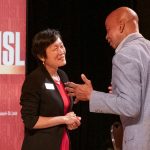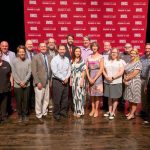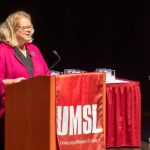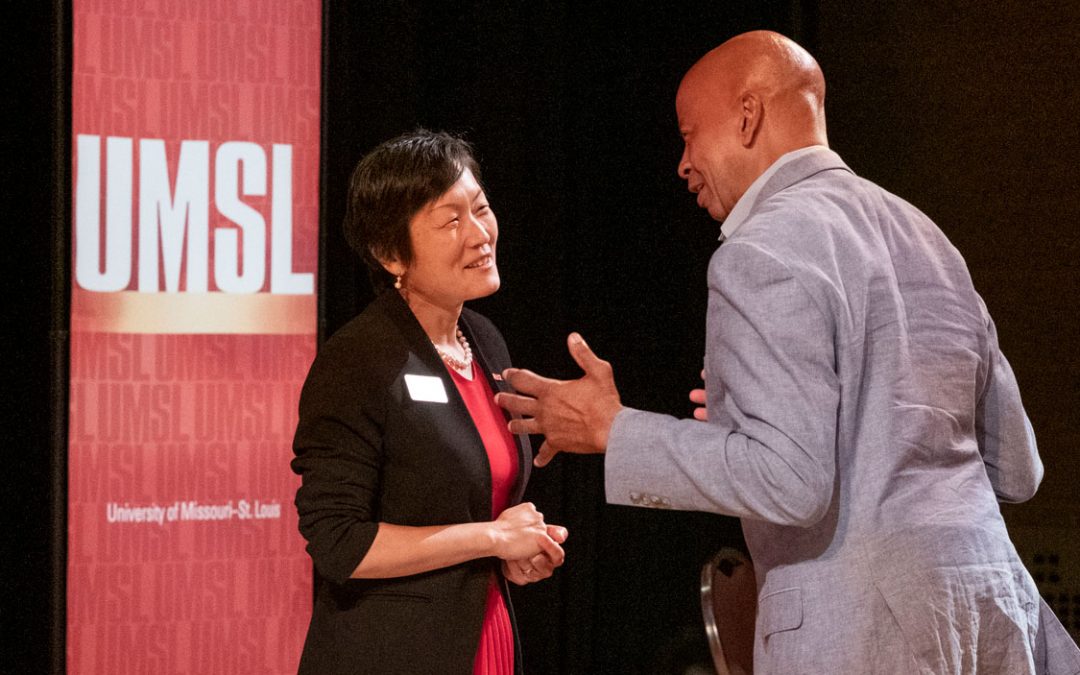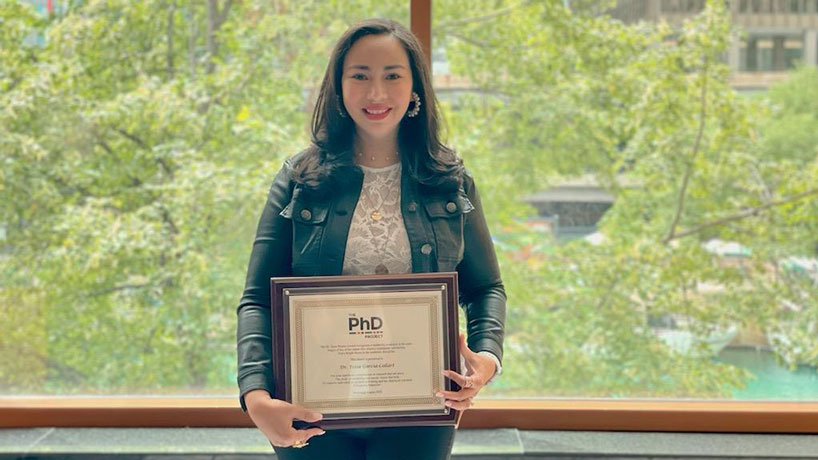
Assistant Professor of Marketing Tessa Garcia-Collart received the Ilana Shanks Emerging Scholar award from the PhD Project. (Photo by Tessa Garcia-Collart)
Tessa Garcia-Collart, an assistant professor of marketing at the University of Missouri–St. Louis, grew up in Honduras watching her mom balance family life and work as a professor teaching intensive care nursing at the Universidad Nacional Autonoma de Honduras.
Following in her mother’s footsteps as an educator wasn’t initially something she planned to do, but eventually she found herself led in that direction.
After receiving her bachelor’s degree in marketing and international business from the Universidad Tecnologica Centroamericana in San Pedro Sula, Honduras, Garcia-Collart moved to Miami to pursue an MBA in global business at Thunderbird School of Management and later a PhD in marketing at Florida International University. This is around the time she became involved in The PhD Project, a nonprofit that focuses on increasing diversity in academia by cultivating diverse faculty in business schools to encourage research and mentor undergraduate and graduate students.
In working with the organization, Garcia-Collart met Ilana Shanks, then an assistant marketing professor at Stony Brook University, and the two became friends. Garcia-Collart had no idea of the impact Shanks would have on her life and career.
At the UMSL College of Business Administration, Garcia-Collart teaches undergraduate principles of marketing and graduate brand management courses. She researches culture and consumer well-being and brand communications in digital media. Her research in these areas led to being published in leading marketing journals, doing conference presentations and receiving several accolades, including most recently The PhD Project’s 2022 Ilana Shanks Emerging Scholar Award. Garcia-Collart received the award, named posthumously to honor Shanks, during a ceremony last week in Chicago.
“This award was created last year to honor the legacy of Dr. Ilana Shanks,” Garcia-Collart said. “This is the most meaningful award that I’ve received on a personal level because Ilana Shanks was my dear friend, and she was such a brilliant emerging scholar in our field. I am honored and excited to see Ilana’s continued impact in marketing research and academia. Undoubtedly, she continues to be a bright leader for all marketing scholars.”
The award was created to recognize a marketing scholar in the early stages of their career who has demonstrated excellent scholarship and promise in academia. The award honors a junior academic who has significantly contributed to research that advances the study of marketing as it relates to societal issues and assists in the improvement of individual and societal well-being.
Some of Garcia-Collart’s research is focused on examining the impact of digital marketing and social media on consumer well-being. For example, she’s explored how social media can affect one’s self-image. In her work, she also investigates social media behavior such as the drastic spike in usage during the onset of the COVID-19 virus.
“There was a significant increase in time per day spent on social media in 2020, with consumers dedicating three or more hours to social media,” she said. “And if you think about that, what if we had used half of that time to learn a different language? Or check in with a friend who might need us? Isn’t that still very self-fulfilling? Yet, we are trapped in this social media hole, and I think that we as researchers have not even touched the tip of the iceberg in terms of understanding, from a scientific perspective, the impact this has on consumer well-being, presently and in the future.”
As many have discussed, Garcia-Collart ponders the future of the current and future generation’s ability to effectively socialize due to the reliance on social media and other digital technology versus in-person interaction.
“In all areas of life and career, we need to have strong social skills,” she said. “These technologies won’t teach you social skills. We didn’t have social media growing up. We may have had toward the end of our adolescence or beginning of adulthood, but now children have social media at 8 years of age. I wonder 10 years from today the kind of social interaction abilities they will have.”
Her research also covers how marketing can help communities make other healthier choices.
“I have published work on how advertising to Hispanic communities can increase their healthy food choices,” Garcia-Collart said. “There are increased rates of obesity in our community here in the U.S. It partly stems from the lack of access to healthy foods. They’re very expensive for the Latin and Hispanic consumers. So how can we use marketing to help them make decisions that are healthy for their own bodies?”
Garcia-Collart understands that representation matters and recognizes the importance of having diverse voices in academic settings that help develop talent that will contribute to the business world. When it comes to the field of marketing and consumer behavior research, she knows it is essential to be able to understand consumers and subjects of research from an authentic perspective that includes familiarity with culture. Her work thus far, as noted by The PhD Project in giving her the award, reflects the significance of having that knowledge.
“Minority communities are highly underrepresented both in academia and in corporations, yet the marketplace is constituted by a growing percentage of minority consumers,” Garcia-Collart said. “Thus, who better to conduct impactful research in the areas of culture and related marketing strategies than minority researchers? As a female Hispanic professor who was born and raised in Honduras, conducting such research in a business-oriented academic setting achieves many objectives in terms of racial, cultural and ethnic representation.
“In sum, minority representation in business research is helping expand the topics we are researching, amplifies voices of those that have long been unheard and stresses the importance of understanding cultural and racial complexities in all areas of business.”





